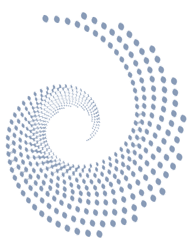Post-Publication Corrections and Retractions
Post-publication corrections and retractions are processes carried out by CRPASE to address errors found in published papers. While CRPASE makes every effort to ensure that papers are published in their final version, errors may occasionally be discovered either by the authors themselves or by readers. In such cases, CRPASE collaborates closely with the authors to rectify any significant errors and, if necessary, informs the journal’s readership by publishing correction or retraction notices.
Each publisher has its own approach to handling paper corrections and retractions. CRPASE has a specific policy outlined below, which can also be found in detail on its website.
Corrections
Different types of corrections can be made to papers after they have been published, which are described in the following sections.
- Minor Errors
Minor errors within the main text of a publication that do not impact the message or readability of the manuscript are not allowed to be corrected, regardless of who made the error. Examples of these errors include spelling or punctuation mistakes.
- Errors in Metadata
If deemed appropriate by the Editorial Office, errors in the metadata of a manuscript, such as errors in titles, author names, or abstracts, will be corrected and the corrected version will be republished. All databases where the paper is indexed will also be notified to ensure that the necessary changes are made.
- Corrections
The following types of corrections are eligible for an update, provided that a correction notice is published alongside them. A correction notice is a separate publication linked to the original paper, informing the journal’s readership about a significant change made to the original publication. Similar to metadata errors, all relevant indexing databases will be notified to keep their records up to date.
Errors that may impact the scientific interpretation of a paper (e.g., a misleading section in an otherwise reliable publication or an error in the data or interpretation of a paper that does not affect the final conclusions). Scientifically relevant formatting changes (e.g., missing or unclear figures or tables). The addition or removal of the author(s) from the authorship list (including entire affiliations). The addition or removal of an entire reference. The addition or removal of a substantial amount of text within the back matter (e.g., funding, author contributions, or acknowledgments).
Author Name Change Policy
The CRPASE (Computational Research Progress in Applied Science & Engineering Journal) has a policy regarding author name changes that aligns with the Committee on Publication Ethics (COPE) initiative and guidelines, which promote inclusivity.
For more information see Author Name Change Policy
Retractions
In rare cases, a paper may need to be retracted. Retractions are necessary due to reasons such as plagiarism, ethical breaches, data fabrication, errors during the research process, or other significant concerns. Retracted articles are removed from the academic literature to preserve its integrity. CRPASE follows the policy of the Committee on Publication Ethics (COPE) and its recommendations for such cases.
When a paper requires retraction, CRPASE will publish a retraction notice to inform the journal’s readership. The original publication will be marked with a "RETRACTED" watermark but will still be accessible on the journal’s website for reference purposes. However, retracted articles should not be cited or used for further research, as they cannot be relied upon. Retraction notices are published with the same authorship and affiliation as the retracted paper to ensure proper identification by readers in indexing databases. The retraction notice will also be published in the current issue of the journal. Partial retractions may be published if only certain parts of the results are incorrect.
A paper will only be removed entirely from CRPASE’s website and relevant indexing databases in very exceptional circumstances where keeping it online would be illegal or likely to cause significant harm.


